Anthony Albanese’s last word on press freedom to Chinese Premier Li Qiang
Anthony Albanese directly raised concerns about press freedoms with Chinese Premier Li Qiang, as the senior Chinese leader’s visit ended without any breakthrough on lobster imports.
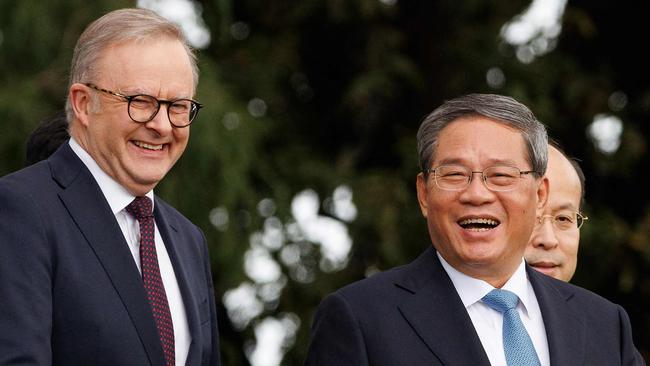
Anthony Albanese directly raised concerns about press freedoms with Chinese Premier Li Qiang, as the senior Chinese leader’s final day in Australia ended without any breakthrough on the last key industry still suffering from Chinese-imposed trade barriers.
Australia’s lobster industry was the last major export still subject to trade impediments that sprung up when relations between China and Australia soured during the pandemic, and there had been growing hopes in the lead-up to Mr Li’s visit that this week could mark the point at which those impositions were lifted. The hundreds of guests at a banquet in Perth honouring Mr Li were all served lobster as an entree.
But those trade barriers remained in place as Mr Li boarded his China-bound 747 on Tuesday afternoon, with China’s second-highest ranked official instead focusing on celebrating the deep commodity export ties with Australia and the potential for both countries to benefit from growth in renewable technologies.
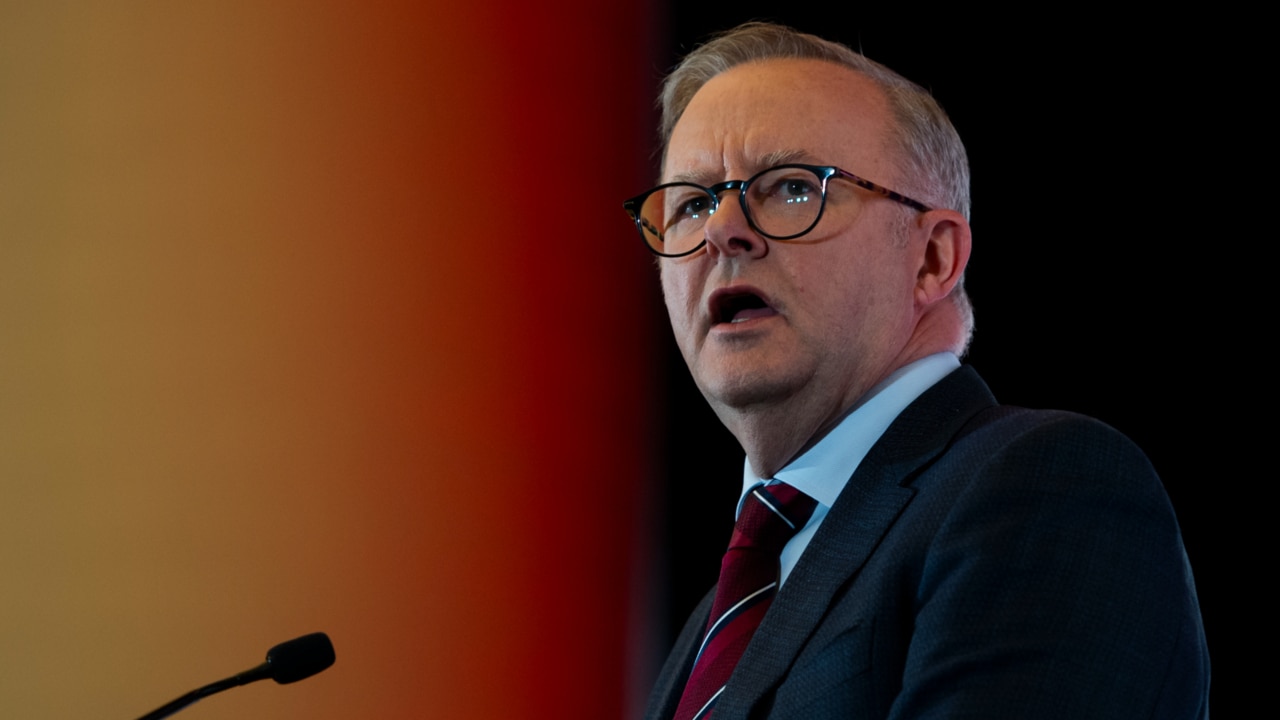
Mr Li’s final day in Australia started with a direct discussion with the Prime Minister about the treatment of Australian journalist and former Chinese political prisoner Cheng Lei at a media event in Canberra on Monday, after members of Mr Li’s entourage attempted to stand over her and block her from being seen in TV footage.
Mr Albanese described it as a “ham-fisted” response.
“There was a clumsy attempt, really, to just stand in between where the cameras were, and Chang Lei,” the Prime Minister said on Perth Nova radio.
In a statement released after Mr Li’s departure, Mr Albanese – while not directly addressing the lobster issue – noted that some trade barriers remained.
“Trade remains the cornerstone of our relationship and my government’s steady engagement has resulted in the removal of almost all trade impediments on Australian exports to China, but there is still more work to do,” he said.
Mr Li’s visit brought large parts of the Perth metro area to a standstill on Tuesday, as his enormous motorcade crisscrossed from a lithium refinery in the south, back up to Kings Park for a business roundtable, through to the city for a banquet, then out to the research and development facilities of Andrew Forrest’s iron ore and energy company Fortescue, before heading for the airport.
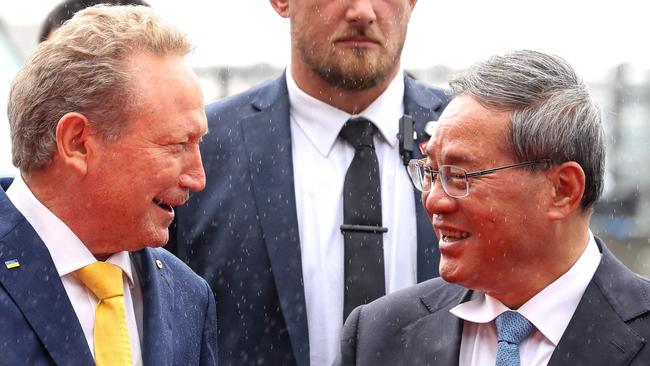
Lobster limbo aside, this week’s visit was the latest sign of the thawing of relations between Australia and China after a tumultuous few years between the trading partners. Trade barriers imposed on the likes of coal, barley and wine had all been eased in recent years as China softened its stance.
Taiwan’s representative in Australia, Douglas Hsu, said China’s easing of those other trade barriers showed that “China needs Australia more than Australia needs China”.
“The lift of those trade bans should not be seen as a favour of China,” he said. “The (Australian) government decided to stand firm on its own position – and that made China back down.
“In the past couple of years, the economic downturn inside China has raised to a level that China has to find ways to get back to the world community … China considers Australia as a source for their energy, for their iron ore, for their agricultural products. So they had to tone down their wolf warrior diplomacy.”
The Albanese government had spoken confidently about the lobster ban being removed in the months leading up to Mr Li’s trip. The trade, which used to be worth $700m, is the final product remaining from the coercion campaign Beijing waged on Australian exports that once amounted to $20bn a year.
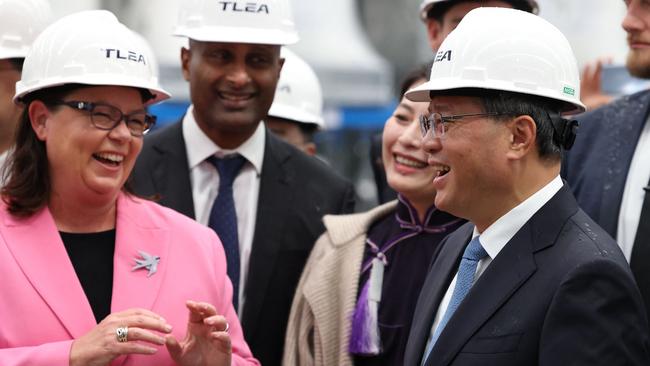
Australian lobster farmers said it was frustrating that they still had no idea if they could again export to what had been by far their most lucrative market.
“It does consume your life whether you want it to or not,” one told The Australian.
Beijing has always claimed the lobster ban was a “technical and scientific” matter concerning cadmium levels in Australian produce, and not economic coercion.
Ben Herscovitch, a close watcher of the bilateral relationship and research fellow at the Australian National University, said the Chinese government was likely trying to avoid looking “nakedly transactional” but said he expected the ban to end in the coming weeks.
“I think they would want to maintain that it’s not actually been coercion – that it’s been a technical, scientific issue,” Dr Herscovitch told The Australian.
Shortly after Mr Li’s departure, the Department of Foreign Affairs and Trade released a statement expressing its “grave concern” about the “dangerous and illegal actions” by China’s vessels against Philippine vessels the previous day.
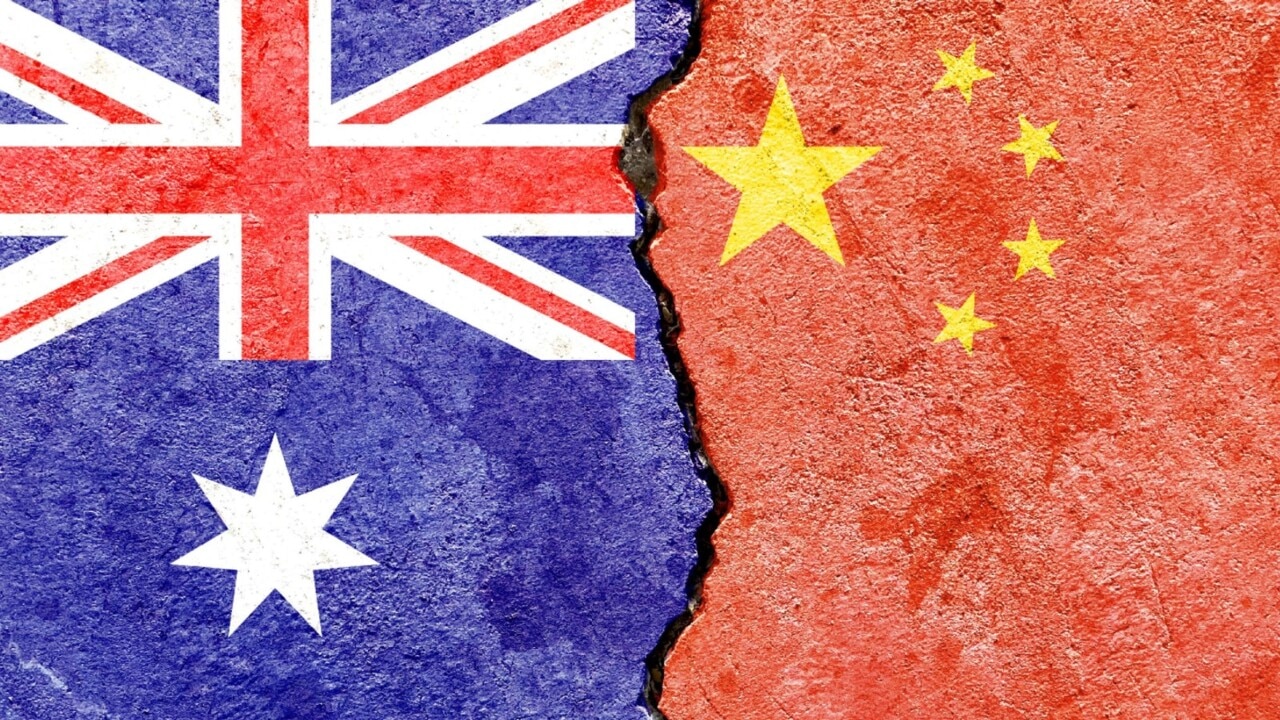
According to DFAT, China’s vessels rammed Philippine vessels taking part in a routine mission to Second Thomas Shoal, inside The Philippines’ Exclusive Economic Zone, on Monday.
“This is an escalation in a pattern of deeply concerning and destabilising behaviour by China. This conduct endangers peace and security in the region, threatens lives and livelihoods, and creates risks of miscalculation and escalation,” the statement read.
There was no mention of Australia’s position on China’s application to join the Comprehensive and Progressive Agreement for trans-Pacific Partnership in the joint statement of outcomes released after Mr Albanese and Mr Li’s discussions in Canberra.
Australia has maintained that Beijing’s application to join the trade pact was a non-starter until all of China’s trade sanctions were lifted, with the lobster ban the final one holding it up.
By contrast, the Chinese CPTPP pact bid was “noted” in China’s joint statement with New Zealand after the Wellington leg of Mr Li’s trip.
There was a total blackout on the Cheng Lei incident on China’s internet. No Chinese news outlets mentioned the encounter, there was not a single mention of the incident on China’s popular Weibo social media platform, and a search of China’s most popular internet browser Baidu returned zero results.
Peter Dutton criticised the Prime Minister for failing to act sooner in response to the incident.
“Grow a backbone and stand up for our country,” the Opposition Leader said. But Foreign Minister Penny Wong said Mr Albanese’s discussion of the Cheng Li incident with Mr Li showed why engagement between the two countries was important.

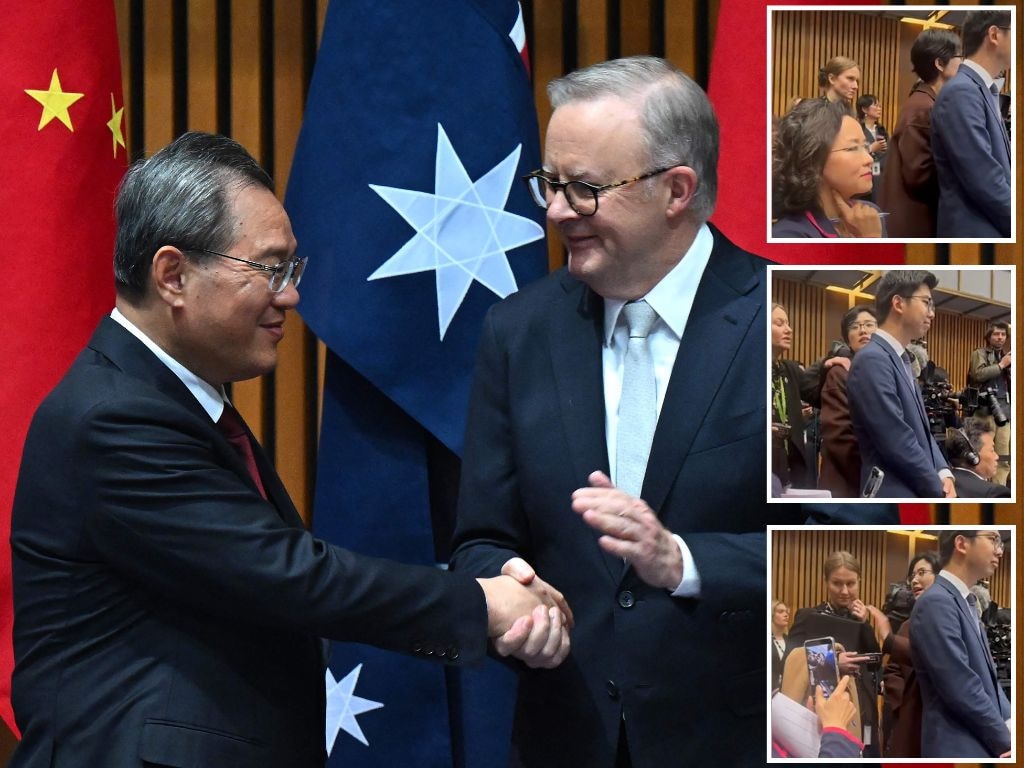
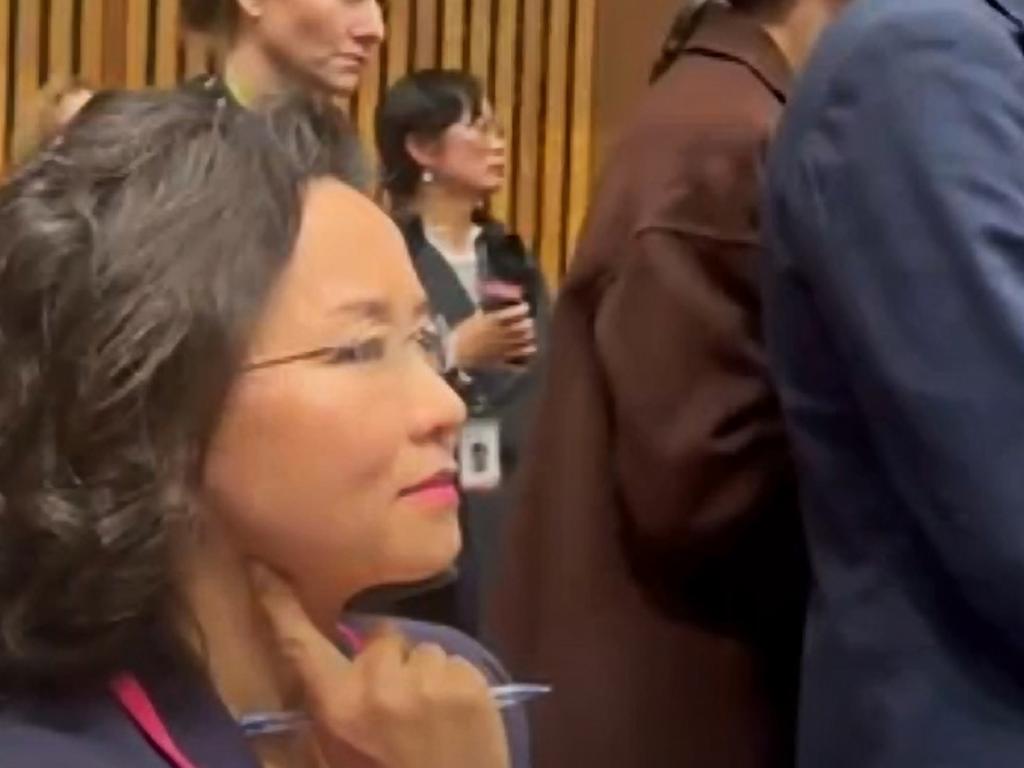
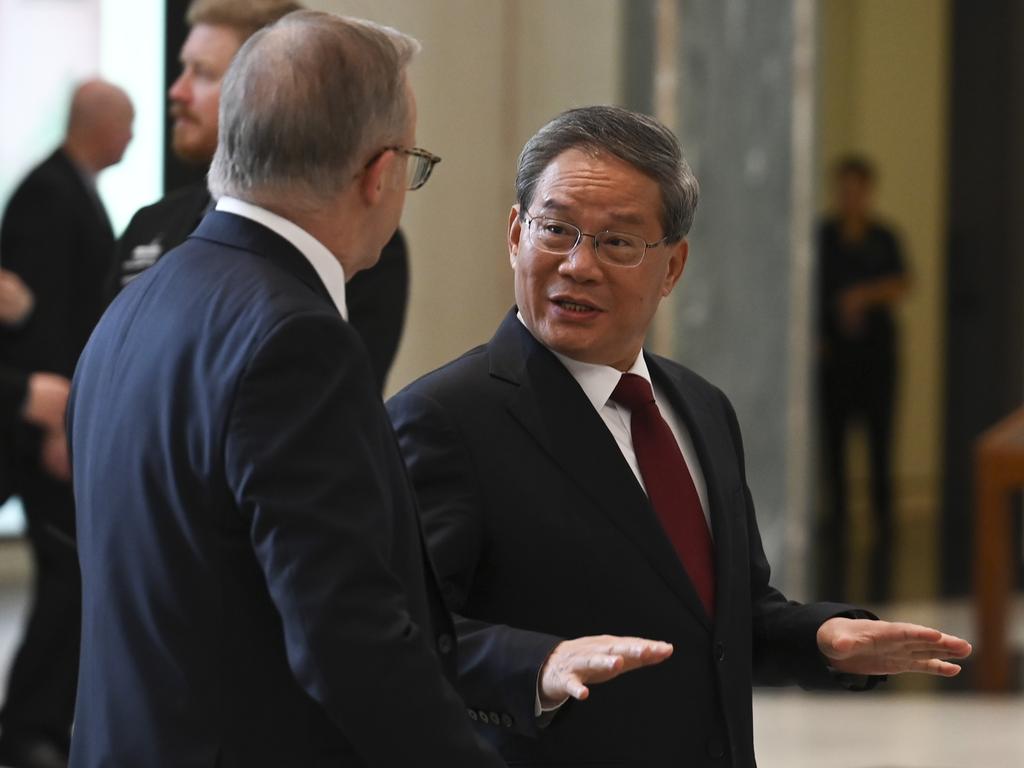


To join the conversation, please log in. Don't have an account? Register
Join the conversation, you are commenting as Logout